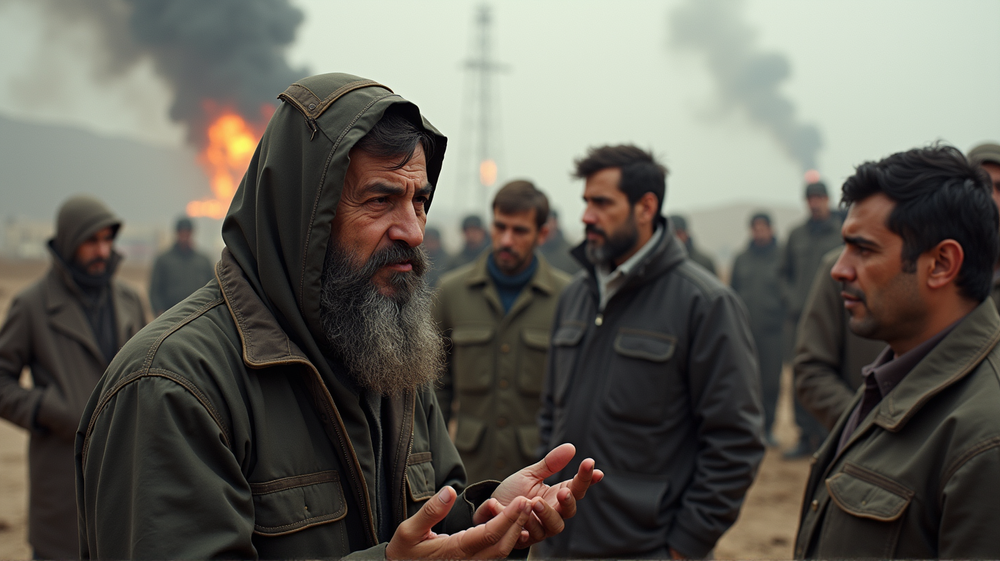A Nation in Turmoil
Shahla’s voice trembles as she describes her life now as “paralyzed.” Her days and nights blend into a monotonous cycle of fear and uncertainty since the United States bombed key nuclear sites in Iran. Like many others, Shahla is caught in the turmoil that has gripped her country. “I feel paralyzed. I just stare at the ceiling all day and all night.”
Unyielding Defiance Amidst Crisis
In a land strained by geopolitical tensions, there are those who stand unbowed. Homayoun from the Maku region embodies this resilience. He speaks passionately about his commitment to Iran, expressing a readiness to pay the ultimate price to protect his homeland: “Yes, we’re going through tough times - but we’ll stand by our country to the very end.” According to BBC, such defiance is a testament to the indomitable spirit that courses through the veins of Iran’s people, even as death tolls rise.
Perspectives of Regret and Reflection
Mehri’s sobs echo the sorrow of many. The US strikes, while terrifying, have granted her an unsettling clarity. “I’m connected to something beyond myself,” she reveals. Her anger bubbles beneath the surface, directed at the leaders of the US, Israel, and her own Iran. It’s a conflict of personalities and ideals, and Mehri questions the cost of ambition: “These are not just words to me—they’re sacred.”
Hope for Peace in Dangerous Times
For Farhad, introspection brings about a somber hope. He dreams of a rejuvenated Iran, one that steers away from past grievances. As he observes the events unfold, he reflects on the burdens of Iran’s nuclear pursuits: “They cut the nation’s throats for years, and they increased the nuclear budget to build those facilities.” Yet, hope shines through moments of despair, as Farhad dreams of a future removed from conflict.
The Quest for a New Diplomatic Path
Amidst this cacophony of fear and courage, a poignant sentiment emerges: change must come from within. Fleeting from Tehran to the Armenian frontier, a young woman voices her belief that transformation imposed by foreign powers isn’t a solution. “We were trying to make changes ourselves inside,” she declares, firm in the belief that only Iran can reshape its future.
A New Dawn for Iran?
As the world watches, Iranians hold their breath, teetering on the precipice of wrath and reconciliation. The echoes of the strikes on Isfahan, Natanz, and Fordo are heard far and wide, a chilling reminder of the stakes at play. What lies ahead for Iran is uncertain, yet the resolve expressed within this tapestry of voices signals a nation eager for peace, stitched together by shared hopes and unspoken fears.
As stated in BBC, the impact of these events on the region cannot be understated. Only time will reveal how the threads of fate are woven into the broader fabric of Middle Eastern geopolitics.












